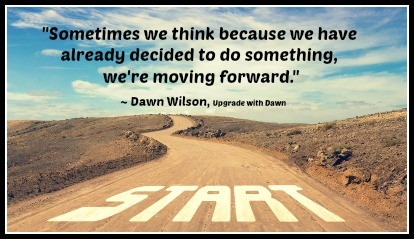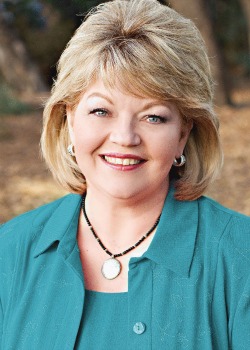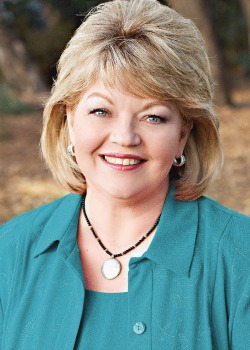Virtual Hugs and Vertical Help
With the explosion of social media, there are countless opportunities to encourage our friends and  family. In this Spiritual Life UPGRADE, Dawn Wilson shares two: Virtual Hugs and Vertical Help.
family. In this Spiritual Life UPGRADE, Dawn Wilson shares two: Virtual Hugs and Vertical Help.
While it's better to spend some face-time with our friends and family, don't discount the value of encouraging Facebook-time!
It's my goal to encourage someone every day in some way. That's hard to do when I spend most of my time at my computer with work, blog management and personal writing.
But here are two ways anyone can be an encourager on social media.
1. Virtual Hugs
The word "virtual," as it is related to computers, means not physically existing as such, but made to appear to be true. A virtual hug is a practical social media way to encourage others.
I hear about a hurting friend or family member and I want to rush to their side and offer a huge hug and word of encouragement. But we are often miles apart—even states away or around the world!
I can certainly pick up a telephone and call them, or shoot them a quick text; but for ongoing encouragement, I can offer a "virtual hug" often and in a number of ways online:
- I can empathize, seeking to understand and share in others' feelings.
- I can share an encouraging quotation, maybe in a specially-created meme.
- I can ask questions to help people process and come to wise conclusions.
- I can offer a scripture—by text or meme—that speaks hope into their situation.
- I can post an article that might encourage or challenge for guidance or growth.
- (And sometimes, I can set up an appointment to "do lunch" or meet somewhere for an actual hug, because there are times face-to-face is the only way to go.)
While my motives and efforts are good, I know virtual hugs can only go so far. I might not understand the real or deepest needs. So . . .
I invite the Lord into the encouragement process.
2. Vertical Help
I've learned to turn my thoughts and conversations into prayers for my friends and family. I especially do so to enlist the Lord's help in sticky, tough and seemingly-impossible situations.
We can do much to help others "horizontally," but we also need to seek aid "vertically" too.
In other words:
Our help and encouragement can be good, but God's help is always better.
We might have an agenda to our prayers, but the Lord most certainly has purposes beyond us. His thoughts and ways are so unlike ours (Isaiah 55:8). It's always wise to seek His will as we pray for ourselves and others.
More than an "I'm praying for you" or an even quicker "Praying" (although there is nothing wrong with those responses), I especially love to pause a little longer and actually write my prayer to the Lord on Facebook so my friend can join in.
As my prayers fly upward to the Lord for my Facebook friends, I picture God's help flowing down to encourage, assist, and even transform.
- The Lord is our refuge and strength—a safe place for us—and He is ready to help whenever we need Him (Psalm 46:1; Hebrews 13:6);
- He understands what we're going through (Hebrews 4:15);
- and when we trust Him completely, seeking His purposes, He stands ready to guide us (Hebrews 4:16; Proverbs 3:5-6).
It's a privilege to pray for our friends and family members with these truths and promises in mind.
How are you combining virtual hugs and vertical help to encourage and support your friends and family?
Dawn Wilson, founder and President of Heart Choices Today, is a speaker and author, and the  creator of three blogs: Heart Choices Today, LOL with God (with Pam Farrel), and Upgrade with Dawn. She is a contracted researcher/reviewer for Revive Our Hearts and a writer at Crosswalk.com. She and her husband Bob live in Southern California and have two grown, married sons, three granddaughters and a rascally maltipoo, Roscoe.
creator of three blogs: Heart Choices Today, LOL with God (with Pam Farrel), and Upgrade with Dawn. She is a contracted researcher/reviewer for Revive Our Hearts and a writer at Crosswalk.com. She and her husband Bob live in Southern California and have two grown, married sons, three granddaughters and a rascally maltipoo, Roscoe.
 Post a Comment → Posted on
Post a Comment → Posted on  Monday, March 20, 2017 at 8:55AM
Monday, March 20, 2017 at 8:55AM  Dawn Wilson,
Dawn Wilson,  Encouragement,
Encouragement,  Facebook prayers,
Facebook prayers,  God's purposes,
God's purposes,  Intercession,
Intercession,  Prayer,
Prayer,  Seeking God,
Seeking God,  Upgrade with Dawn,
Upgrade with Dawn,  Virtual Hugs Upgrade Your Life
Virtual Hugs Upgrade Your Life  Biblical Thinking,
Biblical Thinking,  Prayer,
Prayer,  Relationships
Relationships 










